Special Report
This Is Exactly What Happens to Your Body Once You Start Smoking
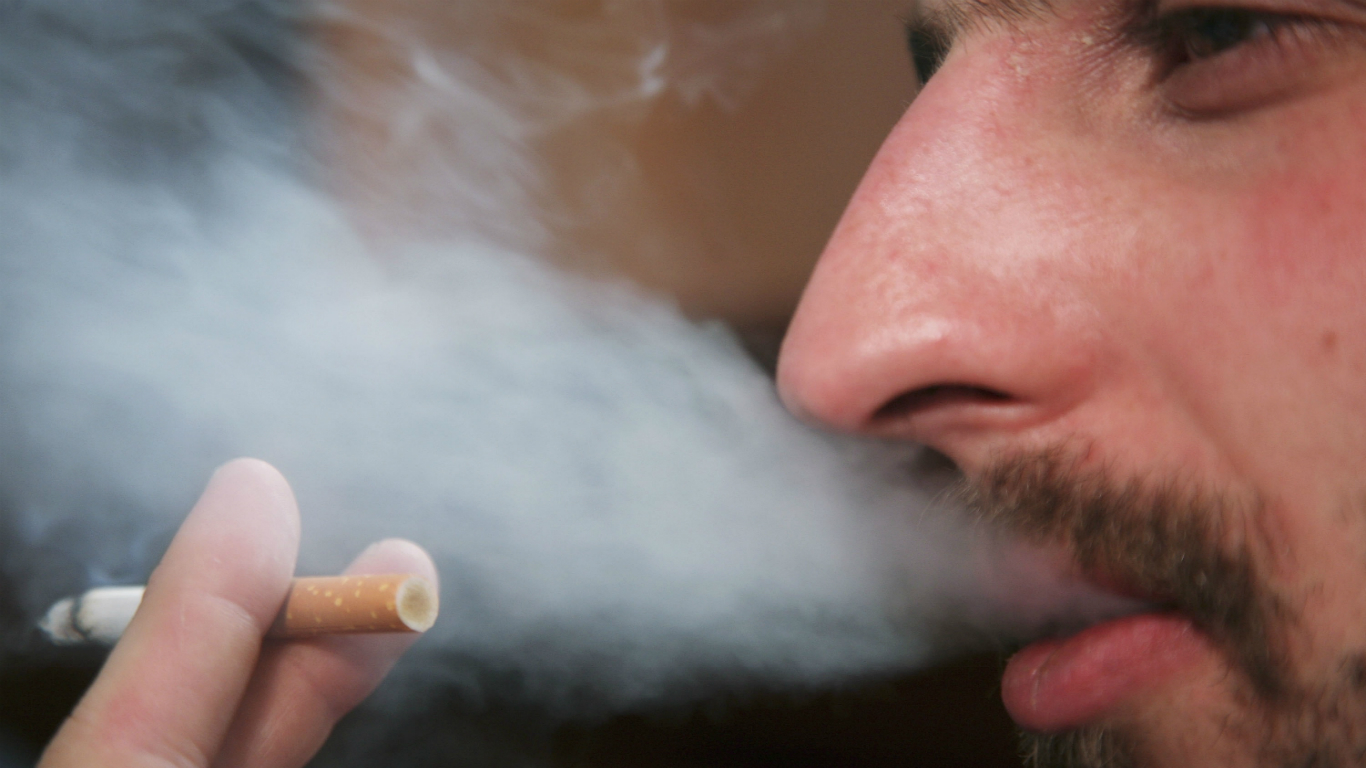
Published:
Last Updated:

More than 6 million people across the world die every year from causes directly linked to tobacco use, and about a million more die from second-hand smoke. Overall, the deadly habit kills half of its users.
Smoking is the most preventable cause of premature death in the United States. Mortality among smokers is three times higher than in people who have never smoked.
No organ is spared from the toxins in cigarettes. Not all are equally affected but the smoke is rapidly distributed throughout the body and reaches all tissues, explained Dr. Adam Goldstein, director of Tobacco Intervention Programs at the University of North Carolina School of Medicine. “We now know that smoking is causally related to liver, colon and even prostate cancer, diabetes and macular degeneration, and that quitting is the biggest preventive factor.”
Cigarette smoking is linked to up to 90% of lung cancer deaths in the United States, where it’s the second most common type of cancer and the deadliest. Worldwide, it is the third most common, and also the deadliest.
Over 4.7 billion people are covered by at least one measure to prevent smoking, such as enacting smoke-free laws and providing nicotine-replacement therapy. This is 63% of the world’s population, a rate that has increased four times since 2007.
To identify how exactly a person’s body is harmed by smoking, 24/7 Wall St. reviewed several studies on the effects of smoking and also consulted a medical doctor who conducts research on health policy and disparities in tobacco use and cessation.
Click here to read about what happens to your body when you start smoking.
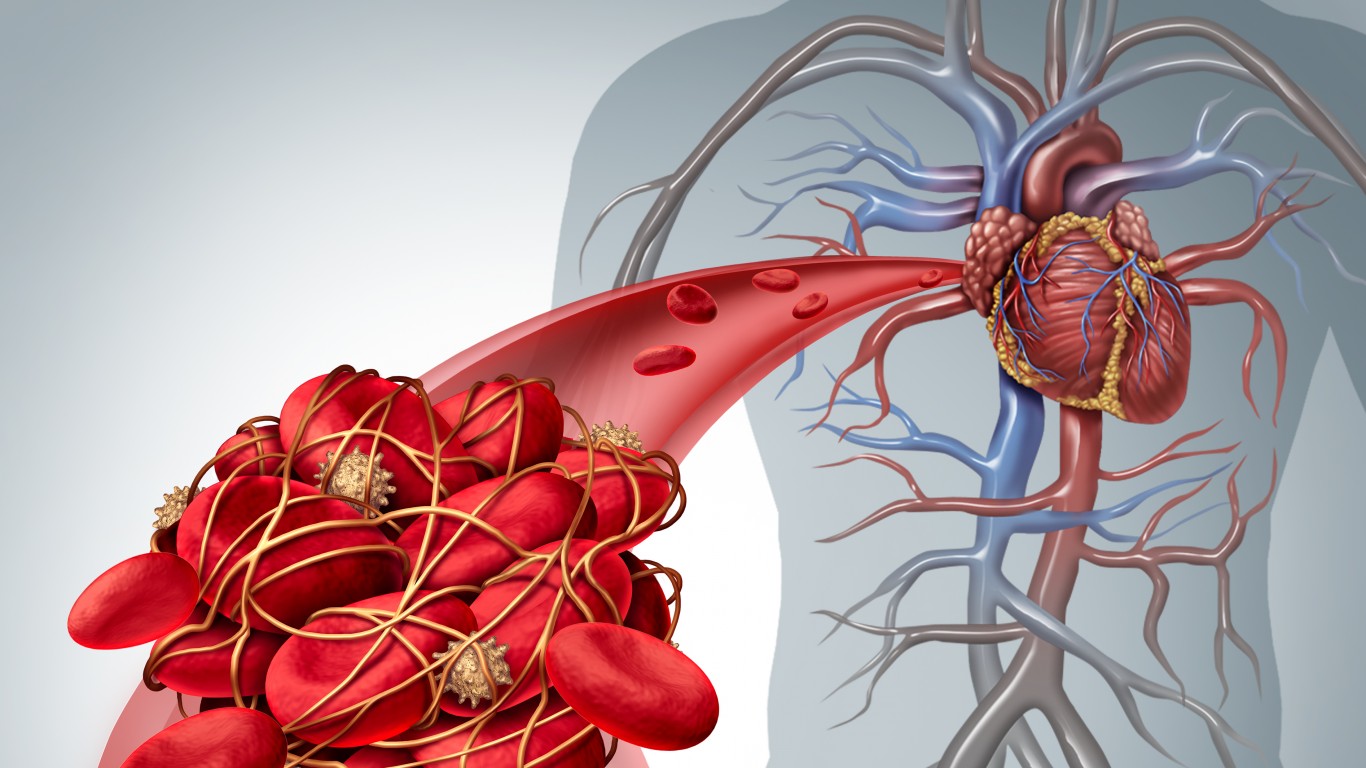
1. Blood thickens and clots
“There are thousands of chemicals in cigarette smoke, it’s not just nicotine,” Goldstein said. They cause the blood to thicken and form clots. The blood vessels in the brain don’t have the same regenerative potential as those in the rest of the body, so damage can happen very quickly, he explained. Restricted blood flow to the brain and decreased oxygen levels increase the risk of stroke.
[in-text-ad]
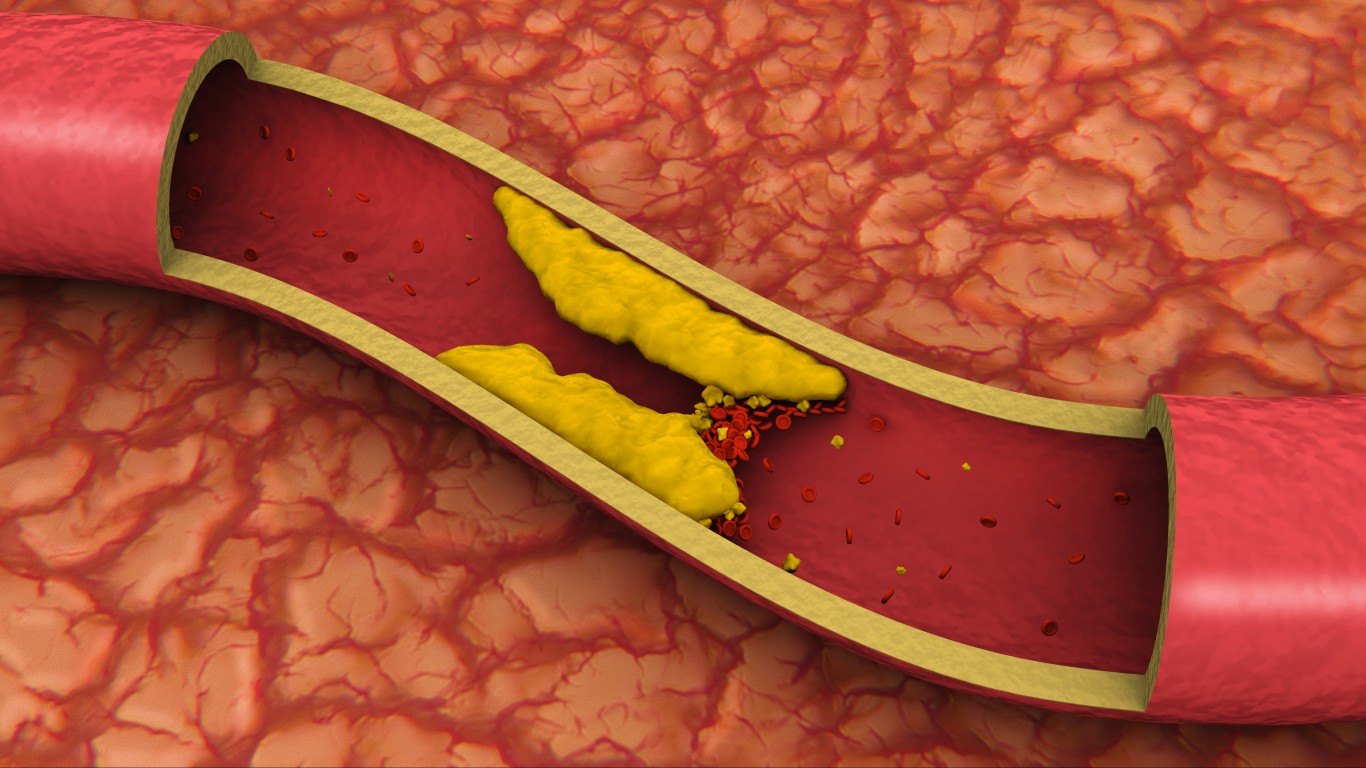
2. Fatty deposits build up and narrow the arteries
“Smoke makes blood vessels very fragile,” Goldstein said. “The toxins in cigarette smoke increase the fatty deposits (plaque) in the arteries.” Plaque is sticky, making arteries narrow and less efficient. This is one way smoke initiates cardiovascular disease. It also exacerbates it when other factors, such as unhealthy diet, are present, Goldstein explained. “There is a dose–response relationship,” he said. “There is no threshold; the more you smoke, the higher the risk of stroke.”

3. Oxygen is replaced with carbon monoxide
Carbon monoxide, a tasteless and highly poisonous gas, replaces oxygen with every puff. “We can actually measure CO levels in smokers, which is usually 20 to 50 times higher,” Goldstein said. They are often shocked to see on the monitor exactly how much poison they have in their bodies, he noted.

4. Brain changes
“Cigarettes are the most efficient drug-delivery device ever made,” Goldstein said. “Nicotine is the hardest addiction to quit.” It enters the nervous system within seconds, attaching itself to receptors in the brain that release dopamine, which is commonly knowns as the feel good hormone. “You get a quick buzz initially and the body wants to re-do the same action right away,” he added.
[in-text-ad-2]
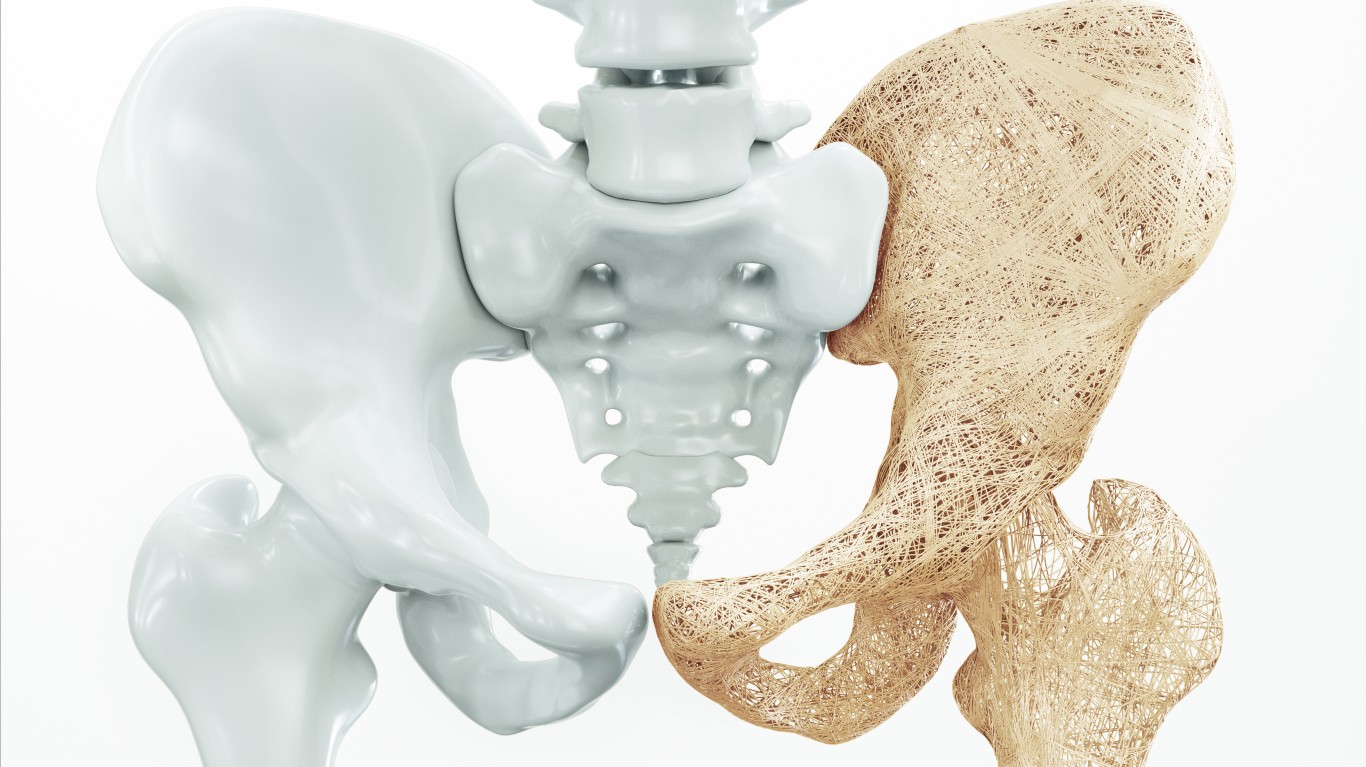
5. Bones become weak
“Smoking is major risk factor for osteoporosis,” Goldstein said. Smoking causes inflammation in the body, which tries to fight it by releasing cortisol. The stress hormone triggers bone mineral resorption, which means the tissue is reabsorbed. “Also, smoking inhibits calcitonin, which is the hormone that helps with bone formation,” he added.

6. Cataracts develop
“The toxins in cigarette smoke narrow blood vessels, which in turn reduce blood supply to the eyes,” Goldstein said. This is why smoking is a major risk for developing cataracts, a clouding of the lens that affects vision. This is also why smoking is the most controllable risk factor that can lead to macular degeneration, the leading cause of blindness. “Smoking also increases the risk of glaucoma, especially in people who are diabetic, because of severe inflammation of the eyes,” Goldstein said.
[in-text-ad]

7. Taste buds become numb
“Smoke numbs your taste buds, so you don’t taste food as much,” Goldstein said. Some studies suggest that smoking can actually permanently kill or significantly damage your sense of taste, at least when it comes to bitter flavors. Taste impairment persisted in former smokers possibly due to bioaccumulation of tobacco toxins and their effect on the body, the researchers suggested.
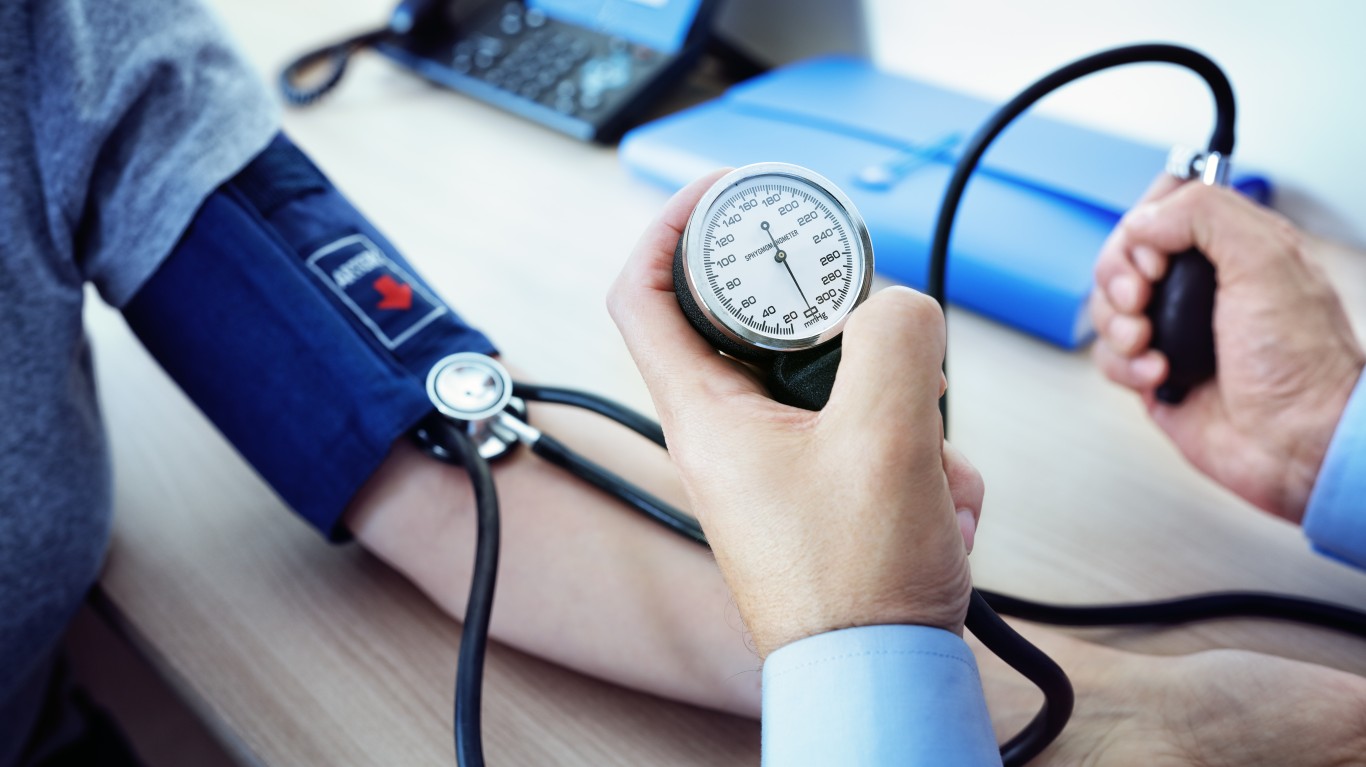
8. Blood pressure increases
The buildup of plaque inside the arteries, a condition called atherosclerosis, increases your blood pressure, making your heart work harder to pump blood through the veins. The plaque can suddenly rupture, causing a stroke or heart attack.

9. Heartbeat rises
Smoking causes an abnormal heart rate, even while resting, research has shown. A study subjected about 300 adults between 20 and 29 years of age to a treadmill test. Their heart rate was measured during, at peak and after they stopped running. The smokers — both men and women — had significantly higher heart rates while resting and they did not increase as much as expected while exercising. Women experienced significantly slower heart rate decline during recovery.
[in-text-ad-2]
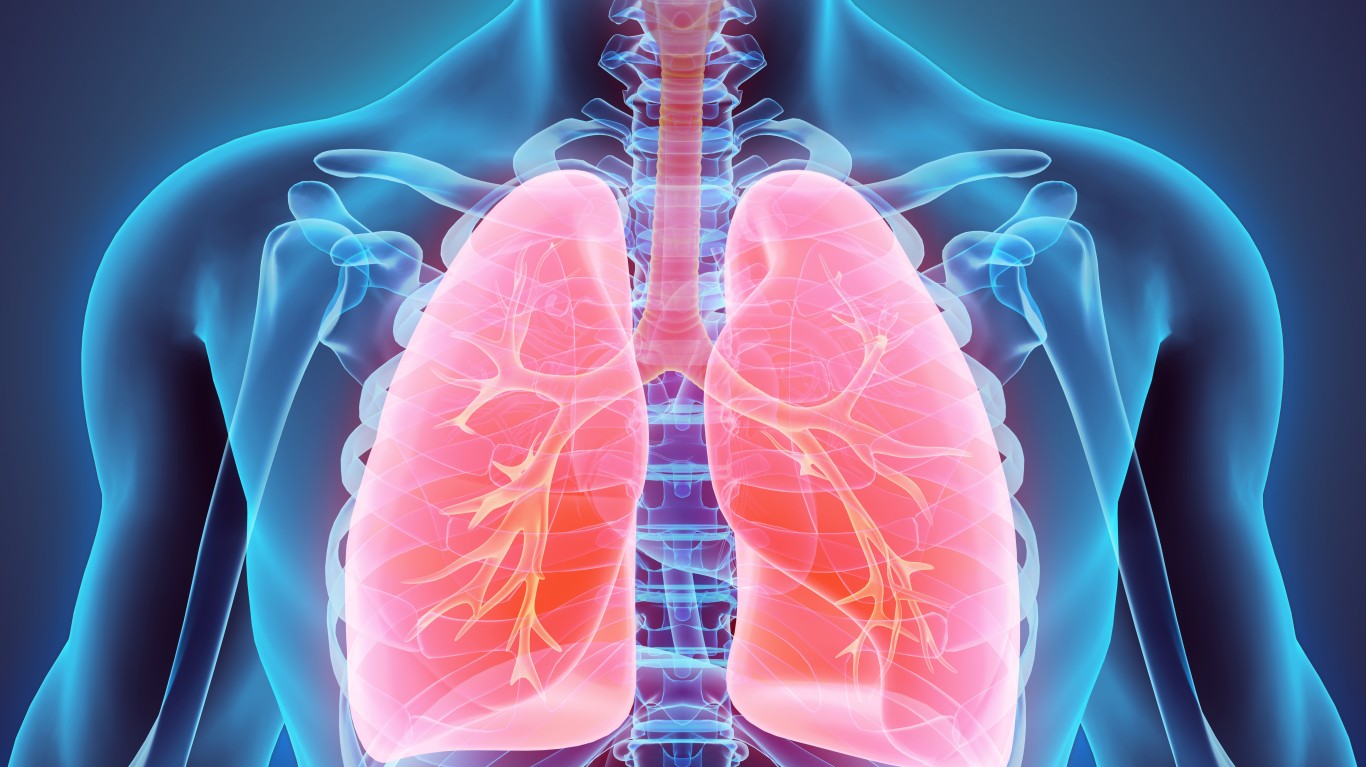
10. Lungs can’t remove toxins
The lungs are lined with small hairs called cilia. Their purpose is to clean the lungs of foreign substances that may harm them, such as toxins from cigarette smoke. However, cigarette smoke contains at least five components that impair the cilia’s defense abilities. Smoking also kills these hairs, leaving the lungs even more susceptible to infections.
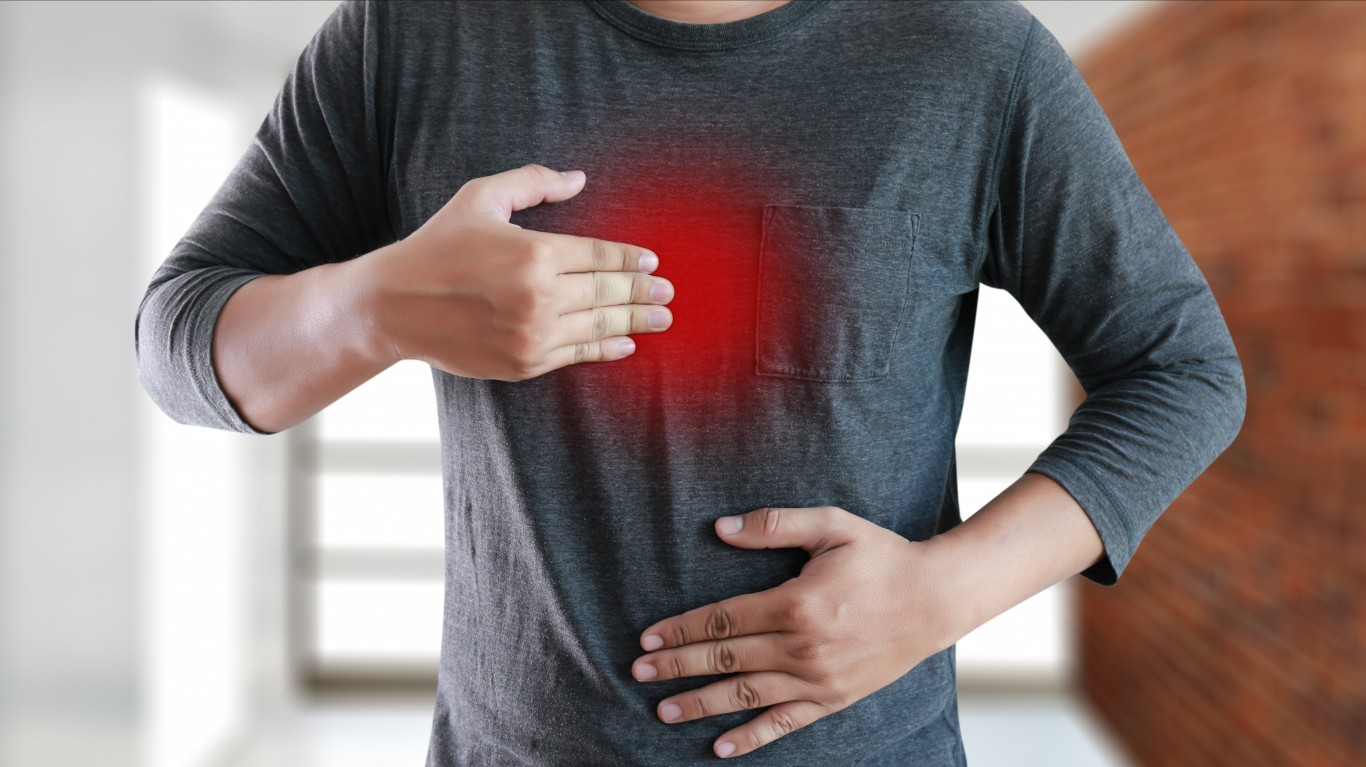
11. Acid reflux
Research has shown that cigarette smoking makes gastroesophageal reflux disease (GERD) much worse by directly provoking acid reflux and also by a long-term decrease of lower esophageal sphincter pressure. Nicotine relaxes the muscle in the lower esophagus that keeps acid in the stomach, causing it to leak. A separate study found that patients who quit smoking see a significant improvement in reflux symptoms.
[in-text-ad]

12. Cellulite appears
meta>image-subject=cellulite
The toxins in cigarette smoke weaken the body’s ability to form collagen, a key protein needed to keep the skin strong and healthy. When that connective tissue is compromised, it may allow for easier protrusion of fat into the dermis.

13. DNA cells change
Smoking a pack a day for a year causes at least 150 mutations in lung cells, about 100 in the voice box, 23 in the oral cavity, 18 in the bladder, and six in the liver, research has found. A gene mutation is a permanent change in DNA. Such acquired mutations are the most common cause of cancer.
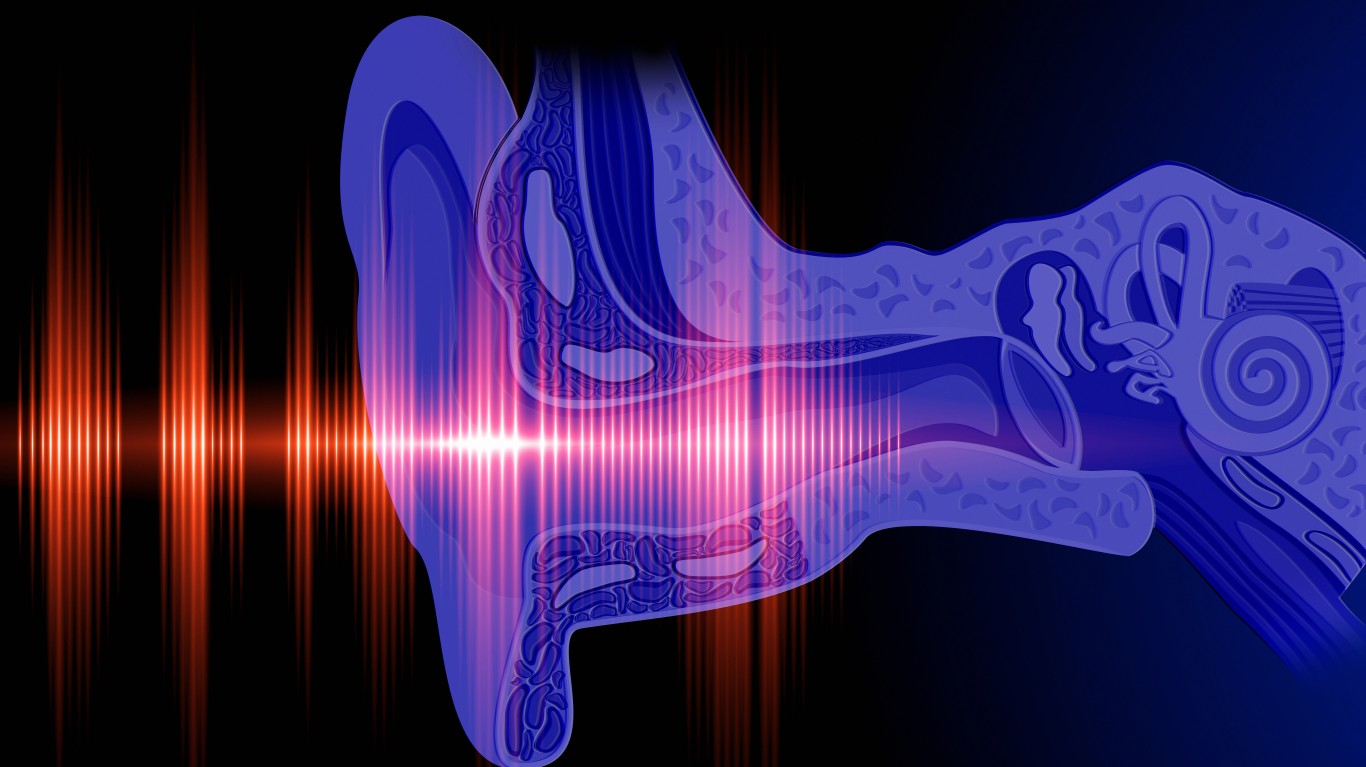
14. Inner ear doesn’t get enough oxygen
The inner ear doesn’t get enough oxygen because it has been replaced by carbon monoxide. A recent study of more than 50,000 participants suggests that smoking is linked to an increased risk of hearing loss. A dose–response relationship was established, which means the more people smoke, the higher their risk of hearing loss.
[in-text-ad-2]

15. Skin begins to wrinkle
Smoking contributes to the degradation of collagen and elastic fibers in the skin, suggesting an imbalance between biosynthesis and the destruction of dermal connective tissue, according to research, leading to accelerated aging of the skin. Exposure to toxic smoke,combined with the repeated facial expressions a person makes while smoking, can contribute to wrinkles.
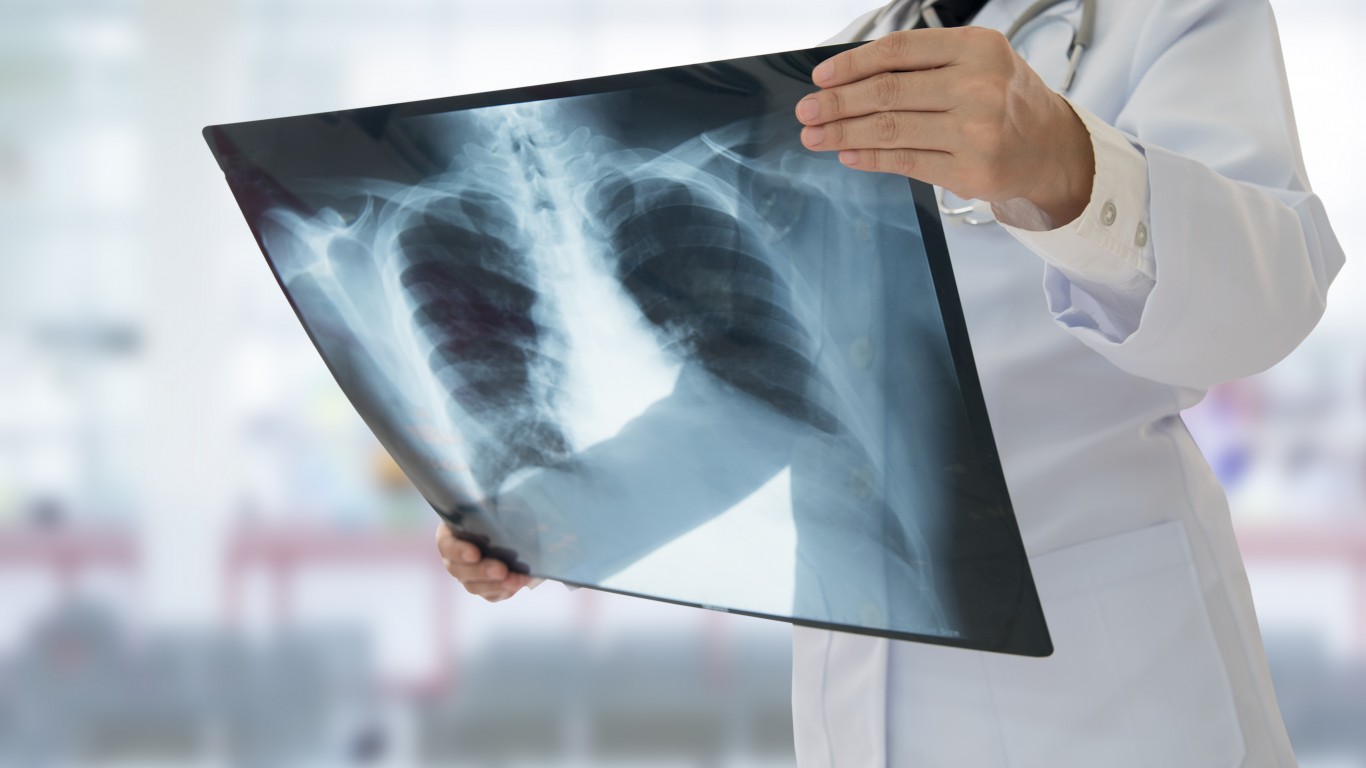
16. Air sacs in lungs lose elasticity
Cigarette smoke scars the lung tissue, so that it loses its elasticity and can no longer exchange air efficiently. Oxidative stress caused by cigarette smoke damages the components of the lung — the epithelium, the airways, and the alveoli (air sacs) — which is strongly linked to chronic obstructive pulmonary disease. This blocks airflow, making it difficult to breathe.
[in-text-ad]

17. Teeth decay
Smoking kills the good bacteria in the mouth. This allows the harmful kinds of bacteria to grow, leading to, at the very least, bad breath, but also to oral diseases. Smokers also have higher levels of cytokines, which is an immune response to an infection. The resulting red, swollen gums — called gingivitis — can lead to irreversible bone loss.
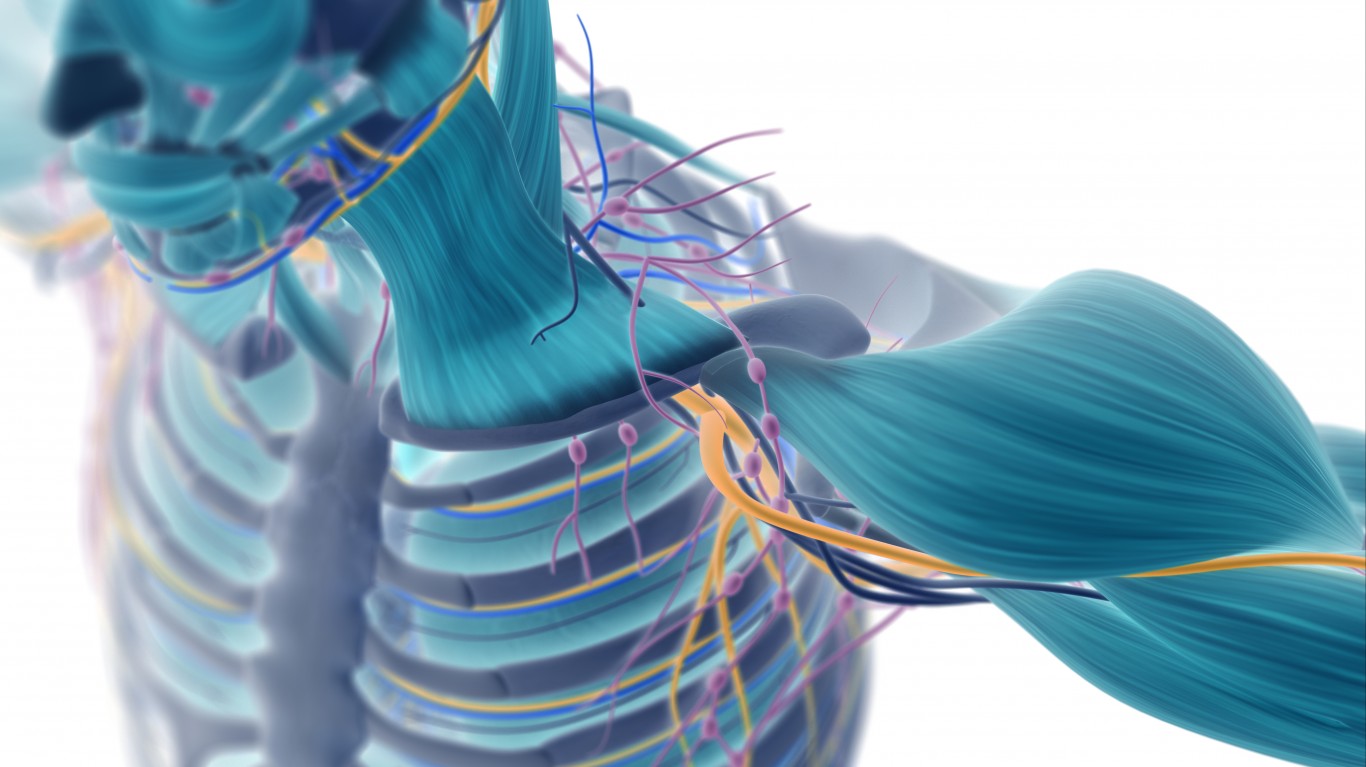
18. Muscles deteriorate
Cigarette smoke contributes to the development of skeletal muscle dysfunction, research shows. The reason is that the toxins circulating in the body induce muscle wasting, reduce oxygen delivery, and damage mitochondria, which helps the body create more than 90% of the energy it needs to support organs.
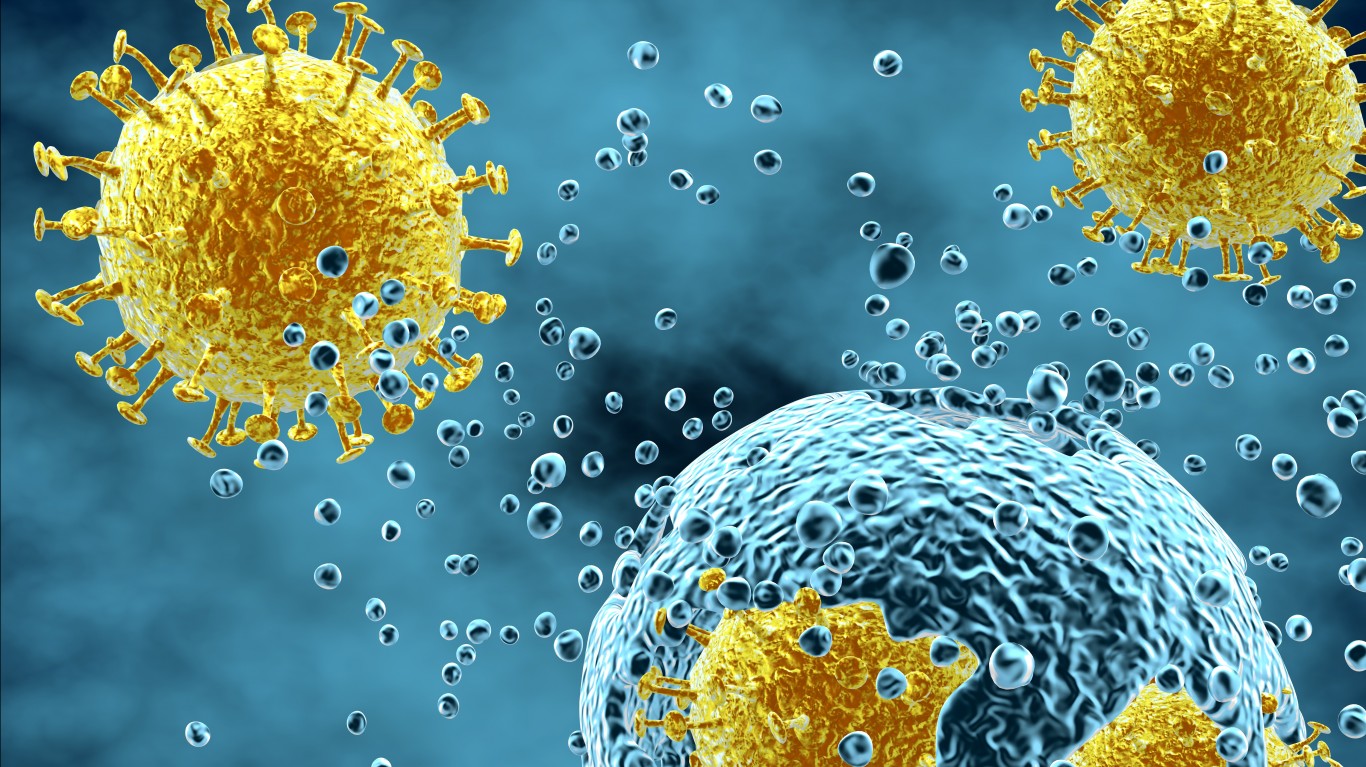
19. Immune system is compromised
Chronic exposure to nicotine, a major chemical in cigarettes, hinders the antibody-forming cell response, damages the antigen-mediated signaling in T cells, and induces T cell inefficiency, according to a study. (T cells are a type of white blood cells that play a key role in keeping the body healthy.) A compromised immune system makes a person more vulnerable to infections, which may take longer to heal, and autoimmune diseases.
Thank you for reading! Have some feedback for us?
Contact the 24/7 Wall St. editorial team.